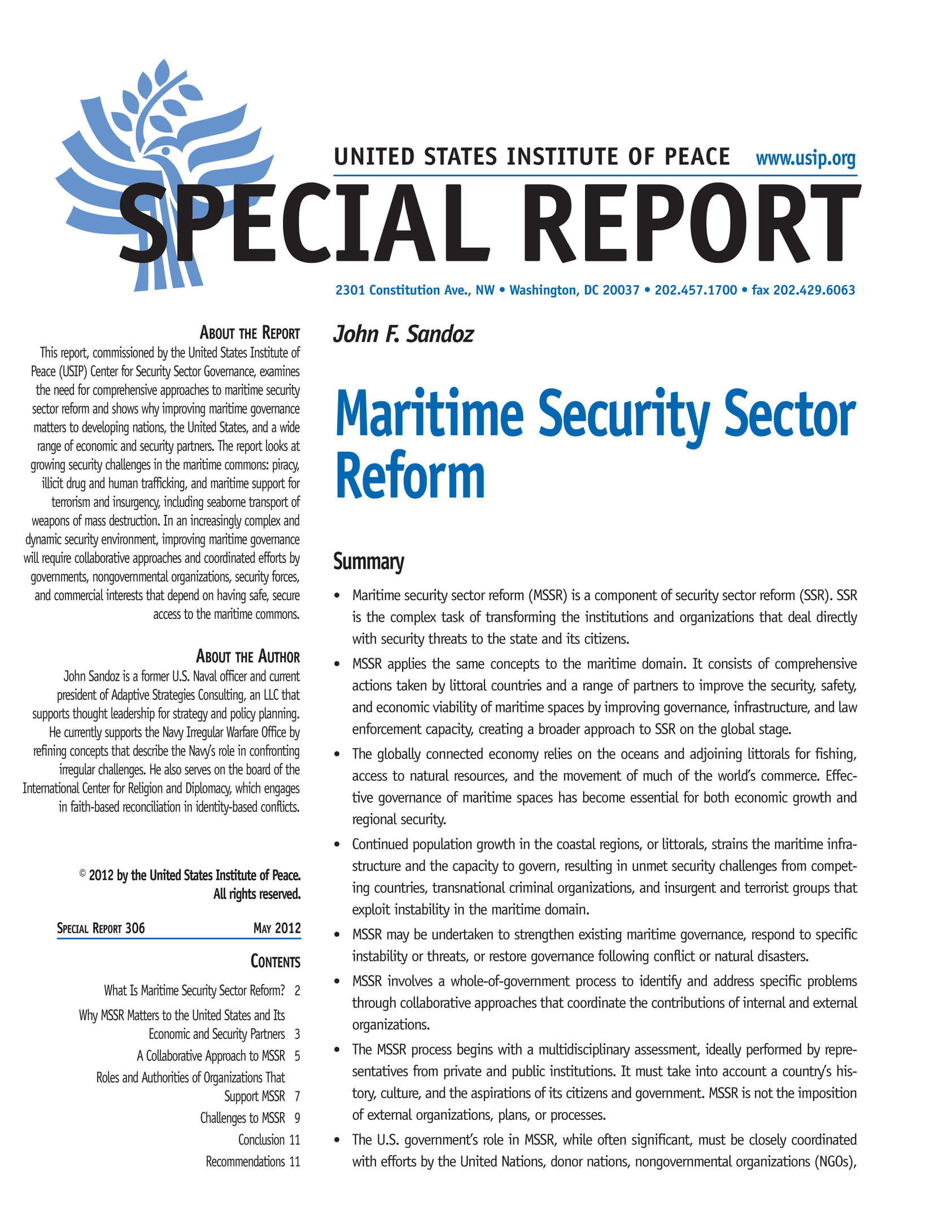This report, commissioned by the United States Institute of Peace (USIP) Center for Security Sector Governance, examines the need for comprehensive approaches to maritime security sector reform and shows why improving maritime governance matters to developing nations, the United States, and a wide range of economic and security partners.

Summary
- Maritime security sector reform (MSSR) is a component of security sector reform (SSR). SSR is the complex task of transforming the institutions and organizations that deal directly with security threats to the state and its citizens.
- MSSR applies the same concepts to the maritime domain. It consists of comprehensive actions taken by littoral countries and a range of partners to improve the security, safety, and economic viability of maritime spaces by improving governance, infrastructure, and law enforcement capacity, creating a broader approach to SSR on the global stage.
- The globally connected economy relies on the oceans and adjoining littorals for fishing, access to natural resources, and the movement of much of the world’s commerce. Effective governance of maritime spaces has become essential for both economic growth and regional security.
- Continued population growth in the coastal regions, or littorals, strains the maritime infrastructure and the capacity to govern, resulting in unmet security challenges from competing countries, transnational criminal organizations, and insurgent and terrorist groups that exploit instability in the maritime domain.
- MSSR may be undertaken to strengthen existing maritime governance, respond to specific instability or threats, or restore governance following conflict or natural disasters. • MSSR involves a whole-of-government process to identify and address specific problems through collaborative approaches that coordinate the contributions of internal and external organizations.
- The MSSR process begins with a multidisciplinary assessment, ideally performed by representatives from private and public institutions. It must take into account a country’s history, culture, and the aspirations of its citizens and government. MSSR is not the imposition of external organizations, plans, or processes.
- The U.S. government’s role in MSSR, while often significant, must be closely coordinated with efforts by the United Nations, donor nations, nongovernmental organizations (NGOs),
About the Report
This report, commissioned by the United States Institute of Peace (USIP) Center for Security Sector Governance, examines the need for comprehensive approaches to maritime security sector reform and shows why improving maritime governance matters to developing nations, the United States, and a wide range of economic and security partners. The report looks at growing security challenges in the maritime commons: piracy, illicit drug and human trafficking, and maritime support for terrorism and insurgency, including seaborne transport of weapons of mass destruction. In an increasingly complex and dynamic security environment, improving maritime governance will require collaborative approaches and coordinated efforts by governments, nongovernmental organizations, security forces, and commercial interests that depend on having safe, secure access to the maritime commons.
About the Author
John Sandoz is a former U.S. Naval officer and current president of Adaptive Strategies Consulting, an LLC that supports thought leadership for strategy and policy planning. He currently supports the Navy Irregular Warfare Office by refining concepts that describe the Navy’s role in confronting irregular challenges. He also serves on the board of the International Center for Religion and Diplomacy, which engages in faith-based reconciliation in identity-based conflicts.